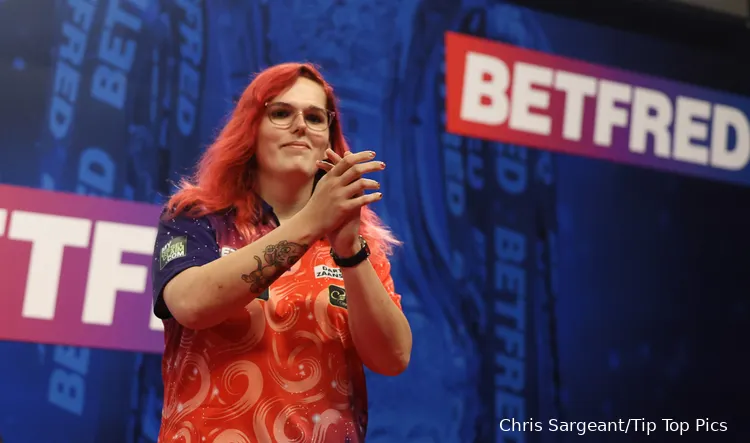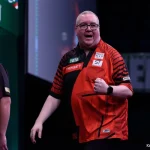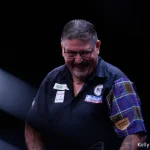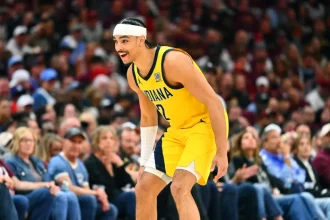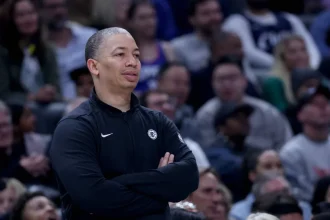Noa-Lynn van Leuven has made history by becoming the first trans woman to qualify for the PDC World Darts Championship at Alexandra Palace, a groundbreaking achievement that has sparked significant discussions within the darting community.
However, not all reactions have been supportive. Fellow player Vincent van der Voort has voiced his concerns about the allocation of spots reserved for women in the championship. While he acknowledges the historical importance of van Leuven’s qualification, he expresses discomfort with the current structure that allows female players to secure positions based on a separate ranking system, namely through the Women’s Series.
“It may be a historic moment that Noa-Lynn qualified, but I keep finding it all difficult,” he stated during a recent episode of the podcast ‘Darts Draait Door’.
Van der Voort’s primary contention lies in the implications of having distinct pathways for female players to participate in the World Championship. He argues that while women should be able to compete, the fact that they receive dedicated spots through a separate ranking feels unfair to other athletes.
He cites Lisa Ashton as an example, noting that her Tour Card was acquired under rules that apply universally to all players, which he believes should be the standard. “As an athlete, I find that difficult,” he reiterated, highlighting a tension between inclusivity and perceived fairness within competitive sports. Van der Voort’s comments reflect a broader debate about the integration of gender identities in sports, particularly in traditional arenas like darts.
Additionally, van der Voort raises questions about the motivations behind the inclusion of diverse player demographics. He recognizes that commercial interests often drive decisions, as organizers may seek to broaden the appeal of the sport and attract a larger audience.
“If women, youth players and darts players from exotic countries participate because it brings in more money and is commercially more interesting, then I understand that too,” he remarked. However, he emphasizes that, from a purely athletic standpoint, the best players—regardless of gender or background—should be the ones competing for the championship title. This perspective underscores the complexity of balancing inclusivity with competitive integrity in sports.
As van Leuven prepares to face the Alexandra Palace crowd, van der Voort predicts that she will encounter both support and hostility. “That will be tough for her,” he noted, acknowledging the intensity of the darts community and the mixed reactions that come with being a trailblazer. He recognizes the challenges she may face, including the potential for negative commentary and criticism.
“She has to grow an elephant skin,” van der Voort cautioned, understanding the weight of being the first trans woman to compete at this level. As discussions continue around her historic qualification, it’s clear that van Leuven’s journey is not just about personal achievement but also about navigating the evolving landscape of inclusivity in sports, and the reactions it provokes from both supporters and skeptics alike.


